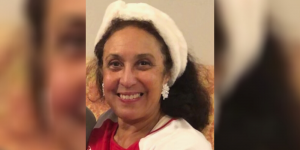
I suppose I took for granted the fact that I was an excellent coper (if I do say so myself!). I never really thought much about how I approached leukemia. I did what the doctors told me to do and I learned just enough about my disease to sound intelligent and to understand what was happening in my body without clouding my mind with worries about possible adverse reactions. I relied on my support network. I adopted my own affirmations: “I will recover fully, I will remain cancer-free, and I will live a normal life”.
I’ve been trying to come up with ways to more clearly verbalize how to be a patient because I want to help my dad. He had emergency invasive back surgery one month ago and is now struggling with the physical limitations that are a result of both his condition and the lengthy and difficult procedure. I realize invasive back surgery and leukemia are quite different, but don’t you think there are some similarities between patients of all illnesses? Dictionary.com defines a patient simply as “a person who is under medical care or treatment”. Under this definition, everyone has cursory knowledge of how it feels to be a patient.
Yet there is so much more involved when you experience a life-threatening and/or life-altering health crisis. How can I lift my dad’s spirits? I cannot tell him when or if he will have feeling in his feet. I can’t predict the day the discomfort in his back will dispel. I have no idea when he will be allowed to drive again or go on a hike in the Blue Ridge Mountains.
I can tell him that I understand his frustrations. I can motivate him to go for a walk around the driveway. I will point out how well he is walking compared to several weeks ago. But I think he will truly make strides once he embraces his role as a patient, an admittedly hard role for a physician who has worked in medicine for four decades. When your health is such that you must devote all your energy into healing, everyday life can become very overwhelming.
I guess my main purpose for this post is to note that as patients, we all have something to share with others, whether we are “activated” or not. Pass on your knowledge. It may help someone struggling to cope with major health changes in his/her own life. I hope my experience can make a difference for my dad.




